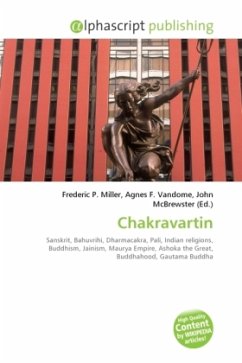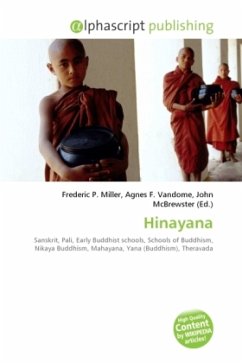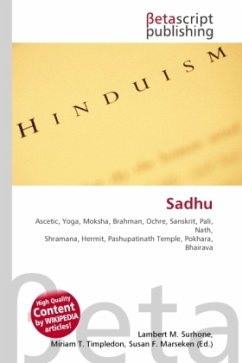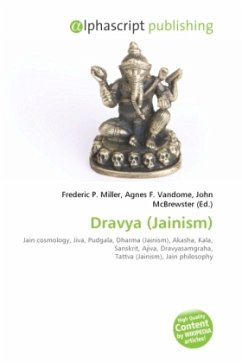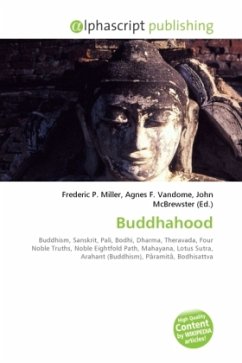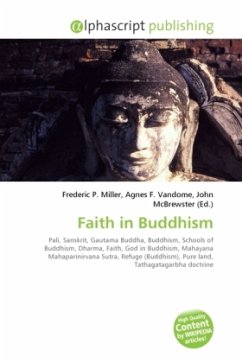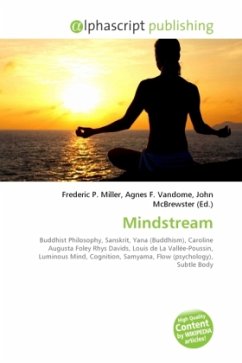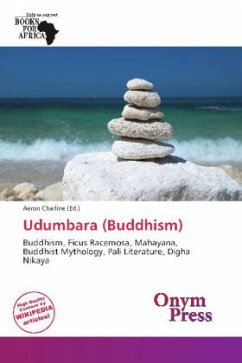
Anatta
Versandkostenfrei!
Versandfertig in 6-10 Tagen
39,99 €
inkl. MwSt.

PAYBACK Punkte
20 °P sammeln!
In Buddhism, anatt P li or an tman Sanskrit refers to the notion of "not-self". One scholar describes it as "meaning non-selfhood, the absence of limiting self-identity in people and things." Regarding the individual, in the Pali suttas and the related gamas referred to collectively below as the nikayas, the agglomeration of constantly changing physical and mental constituents "skandhas" comprising a human being is thoroughly analyzed and stated not to comprise an eternal, unchanging self often denoted "Self". In the Nikayas, the Buddha repeatedly emphasizes not only that the five skandhas of ...
In Buddhism, anatt P li or an tman Sanskrit refers to the notion of "not-self". One scholar describes it as "meaning non-selfhood, the absence of limiting self-identity in people and things." Regarding the individual, in the Pali suttas and the related gamas referred to collectively below as the nikayas, the agglomeration of constantly changing physical and mental constituents "skandhas" comprising a human being is thoroughly analyzed and stated not to comprise an eternal, unchanging self often denoted "Self". In the Nikayas, the Buddha repeatedly emphasizes not only that the five skandhas of living being are "not-self", but that clinging to them as if they were an immutable self or soul tman gives rise to unhappiness. The anatta doctrine is not a type of materialism. Buddhism does not necessarily deny the existence of mental phenomena such as feelings, thoughts, and sensations that are distinct from material phenomena. Thus, the conventional translation of anatta as "no-soul"can be misleading. If the word "soul" refers to a non-bodily component in a person that can continue in some way after death, then Buddhism does not deny the existence of a soul.



